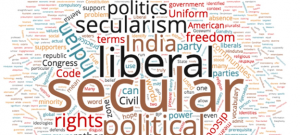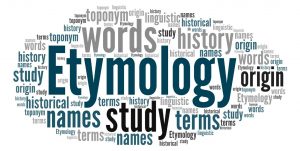TRUTH, JUSTICE, AND THE MIDDLE WAY

Holding to our guiding principles of orientation, balance, and integration will enable us to apply much-needed correctives to definitions without succumbing to the wholesale espousal of any one-sided paradigm of thought. And in that process of realignment, we must not, I believe, shy away from the belief that we are also engaged in the pursuit of “truth.” In discussing the way in which words “betray their own purpose, obscuring the very thoughts they are designed to express,” Francis Bacon affirms the need to excavate “true meanings,” for “the constant impact of words variously used without attention to their true meaning only in turn condition the understanding and breed fallacies.” Our vision must surely extend beyond the postmodernist rejection of any objective explanation of reality. While we might share “postmodernist” skepticism of monolithic explanations that claim to be valid for all groups and cultures, and might acknowledge the valuation of concrete experience over abstract principles and the necessity for interpretation, historicity, and contextualization, this does not mean we need to abolish any conception of “truth” which is not merely a construction of the individual human mind, eternally fallible, relative, and rootless. We need to avoid the rudderless relativism which admits of nothing certain or universal as much as we need to steer well clear of the crushing absolutism which obliterates all context. In this, we follow the Middle Way in our search for the Truth, which, as Boethius put it, is a “mean between contrary heresies.” The Middle Way is not to be conceived of as a dull compromise any more than “moderation” should be confused with half-heartedness or “mediocrity.” Rather, it is the Golden Mean, an aspect of the “due measure and proportion” with which everything is created (Qur’an, 54:49). In his exposition of Islamic ethics, Al-Ghazālī owes much to Aristotle’s formulation of this concept which positions the perfection of human virtues between “excess” and “defect.” The English word “moderation” comes from Latin modus, “keeping within due measure,” which is related to another word which is also the source of English “modest.” Etymologically, moderation has the same inherent meaning in English as modesty, a connection which is also truly Islamic. The Prophet Muhammad is reported to have said: “Every religion has a distinctive feature and the distinctive feature of Islam is modesty,” and “True modesty is the source of all virtues.”
The mention of “measure,” “proportion,” and the Golden Mean (and other related concepts such as “ratio” and “symmetry”) alerts us to the underlying conceptual “geometry” which needs to govern our approach to the definition of words. In the same way as the Proportioned Script in Arabic penmanship is derived from a unifying geometric grid which governs the execution of all 28 Arabic letter shapes, so the most fitting use of words in any language needs to be based on a creative geometry of concepts. And this is a matter of “justice” in its deepest sense, a principle in which aesthetic and moral strands of meaning are intertwined, in the same way as the deepest sense of “beauty” in Arabic (ḥusn) combines both beauty and moral excellence. The root meaning of the Arabic word for “justice” (ʿadl) includes the concepts of fairness, equity, non-discrimination, counterbalance, rectification, and proportion. In much the same way, the English word “fair” denotes not only what is just, equitable, and reasonable, but also what is beautiful by virtue of its proportionality. Its original Germanic root is “fitting,” that which is the right size, in the correct ratio or proportion. The range of meanings of this word reflects a truly Islamic concept, the idea that to be just is to “do what is beautiful” (iḥsān), to act in accordance with our original nature (fiṭrah), which God has shaped in “just proportions” (Qur’an, 82: 7) as a “fitting” or “appropriate” reflection of divine order and harmony. It is noteworthy, too, that the word “decency” has exactly the same underlying meaning as “fairness.” It comes from Latin decere, “be fitting or suitable,” and is closely related to the word “dignity.” To be fair and decent, and hence to act with dignity (and also with “decorum”) is to behave proportionately, to do what is balanced and appropriate in the circumstances, and to abide by values which guide us to what is right and good.
The connotation of “beauty” in the word “fair” is now somewhat archaic, as in the sense “the fairest maiden,” which is referring to more general beauty rather than just to hair color in its sense of “blonde.” Even so, the word has retained the sense of proportionality in its connotation of “moderation.” Fair weather is pleasantly warm and dry, but always falls short of a heat wave; to have a fair chance of success is to have a reasonable chance, and even a fair bit of work, though considerable, is never extreme. The range of connotations, both archaic and modern, directs us to a semantics of “justice” which supports our vision of the clarification and “redefinition” of meanings, and all those elements of conceptual “geometry” which this entails – realignment, repositioning, counterbalance, proportionality, moderation, and balance.
The striking convergence of such meanings within one semantic field in Arabic and English might also remind us that an integrative approach to a glossary of terms needs to include the recognition of what is best in every culture and civilization. As such, it might also be regarded as including the reclamation of a “primordial” language of universal concepts (the “Names” taught to Adam) which permeate all human languages, the underlying unity within the diversity represented by the Tower of Babel. This is not to say, however, that all “authentic” meanings are generalized as being located in an archaic past and only retrievable through specialized etymological excavation, nor that all subsequent shifts in meaning are the result of a negative process of semantic entropy by which “original” meanings have become corrupted over time. After all, prehistoric Indo-European roots have to be reconstructed as hypothetical forms from known forms in cognate languages using phonetic rules; equally, the seminal concepts represented by these roots can only be hypothesized. Nevertheless, as Sardar recommends, our approach to language needs to include “a deeper exploration of the changing meaning of terms and concepts.”
The transmission and further evolution of key concepts through the confluence of civilizations is well illustrated in the thought of Francis Bacon’s namesake, the thirteenth-century philosopher Roger Bacon, who, according to the late President of Bosnia, ʿAlija ʿAli Izetbegovic, “set the entire structure of English philosophical thought” on the pivot of the Middle Way, encompassing many dimensions – political, social, moral, and spiritual. This stream of thought has at its heart the principle of balance: balance between reason, empirical observation, and faith; between individual freedoms and wider responsibilities within society; between pragmatism and the highest ideals; and between a practical concern with the immanent condition of mankind and a hunger for transcendence. Izetbegovic adds that there is “another important fact about Roger Bacon which has never been sufficiently studied and recognized: the father of English philosophy and science was a student of Arabic.” Indeed, he lectured at Oxford in Arab clothes. He was strongly influenced by Islamic thinkers, especially by Ibn Sīnā, and to this influence can be attributed the character of Bacon’s thought and, through him, the origin of the middle way as “the single most important guiding principle in English life.”
This article is an excerpt from: Ziauddin Sardar & Jeremy Henzell-Thomas, Rethinking Reform in Higher Education (London/Washington: IIIT, 2017), pp. 190-3.
The views expressed in this article are those of the author and do not necessarily reflect the views of the Internationa Institute of Islamic Thought (IIIT




